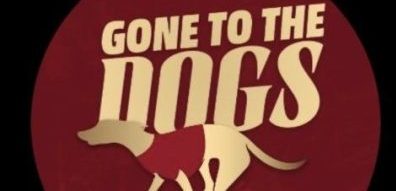1960 The moment when greyhound racing was officially accorded second class status behind horse race and can probably be traced back to Harold McMillan’s Tory government and a House of Commons debate in December 1960. Here is the report as appeared in the following day’s Greyhound Express.
Home Secretary MR R A Butler last night rejected an amendment regarding the omission of a levy on bookmakers for the benefit of greyhound racing when he moved the second reading of the Betting Levy Bill in the Commons.
The Government bill plans to raise about £1,000,000 a year from bookmakers and tote for the improvement of horse-racing amenities.
Last week, a group of both Conservative and Labour MPs signed a motion opposing the Bill because nothing is done for greyhound racing.
This motion, sponsored by Mr Arthur Lewis (Lab. West Ham North) said: “That this House declines to proceed further with a Bill which, while providing for a levy from bookmakers for purposes connected with horse racing, fails to make similar provision in regard to the sport of greyhound racing, notwithstanding that a ten per cent pool betting duty is at present imposed on bets placed with the Totalisator at greyhound racecourses, while there is no equivalent duty payable in respect of the horse racing totalisator.”
Opposing the case for greyhound racing, Mr Butler said he could not accept the argument by those interested in extending the levy that what was good for one was good for the other and the two sports should have similar treatment:
He stated: I do not feel that people feel the needs of the sport are equally pressing.
It is one thing for the Government to provide machinery to give effect to an agreed scheme for the horse racing industry, but it would be very different to impose a scheme for the benefit of greyhound racing which had not been the subject of negotiation or examination.
The amenities of greyhound racing tracks are, on the whole, adequate, and on very large tracks, excellent, so it is more difficult to make a case that greyhound owners are in economic difficulties when their numbers are increasing.
In the horse-racing industry, not only the beneficiaries, but also representative bookmakers, favoured the imposition of a levy. He had no evidence of similar agreement in the greyhound racing industry.
Mr Arthur Lewis, speaking on his resolution said that it was rather strange that for the whole of the debate, apart from one speaker, everyone who had spoken had a declared interest of some sort in horse racing.
Mr Lewis said he wanted to show that there is not a bias in favour of horse racing, but there is a distinct bias against greyhound racing
He said he was secretary of the all-Party committee in the House set up to secure the abolition of the ten per cent pool betting duty.
His purpose was to draw attention to the discrimination against greyhound racing. If the Government wanted to put on a betting tax, they should put it fairly and equitably on both sports.
The Bill was going further to aggravate the discrimination. Under the Bill, there was going to be a levy to help and encourage horse racing, but why not also greyhound racing?
Some of the greyhound tracks in the big cities were first class, but the Home Secretary should go to some of the suburbs and see some which were not first class, those which were struggling to keep going.
At least four had to close. He saw no reason why the Home Secretary could not set up a Peppiatt Committee to investigate the greyhound racing side.
Wing Commander E Bullus (Cons. Wembley North) who said he had for some years been chairman of the All-party group set up for greyhound racing, said the greyhound committee had seen successive Chancellors to seek abolition of the discriminatory ten per cent greyhound racing betting tax.
“We should be treated fairly. We ask that the proposals in the Bill should also, inequity, be proposed to greyhound racing.”
Mr Godfrey Lagden (Cons. Hornchurch) said the phrase ‘Sport of Kings’ was often heard in connection with horse-racing.
“I think too many people are living in the past and thinking of greyhound racing as ‘The Sport of Knaves’” he said. “This is not so. It has become a great industry and a sport which has great security.
Mr J A Farr (Cons, Harborough) said he had recently been to a greyhound meeting. “I have never been enveloped in such a cloud of rich cigar smoke on a horse-racing course” he said.
The Bill got a second reading without a division. The motion in the names of three Conservatives and three Labour back-benchers, regretting that the measure did not provide for greyhound racing was negatived.”
1987 The Daily Mirror Permit Championship worth £1,500 and over 440 metres at Ipswich, is a triumph for Irish trainer Phil Bergin. Based at Rye House, he sends out his Ballinlough Boy (Alleys Blue-Bernadettes Girl, Jul’84) the 4/1 chance led rounding the fourth bend to hold the strong challenge of Biddy Bridge by a length in a time of 26.73. It was the second fastest time of the competition bettered only by one spot. This was the first running of the event and Daily Mirror Greyhound Editor, Harry Lloyd, presented the trophy.
2006 Sports minister and local MP Richard Caborn opens Sheffield’s new homing centre at Gosling Moor Farm
1976 There is a thrilling finishing to the final of the Romford Puppy Cup. The race goes to Lyons Skipper (Burgess Heather-Skipping Chick) trained by Clare Orton. The brother of Laurels winner Greenfield Fox just held off favourite Gan On Danny by a short head in 26.54 for the 425 metres. Future Welsh Derby winner Instant Gambler was a head away in third.
1986 Monmore hold their first eight-dog race. As the tote is not equipped to handle more than six runners betting is on the books only.
2006 Trainer Tom Foster hands in his licence after 44 years as a trainer. After leaving the North East as a 15 year old, Tom became a kennelhand, head man and trainer at GRA’s Northaw Kennels. He started off at Clapton before moving to White City and Wimbledon which he left the previous year. Among his successes were three Grand Nationals and an English Oaks. Son Jason took over the Burwood range.
1956 Attendances are down and coursing meetings are cancelled due to petrol rationing brought about by the Suez crisis.
2005 GRA announce that Belle Vue general manager John Gilburn is to become the group sales and marketing manager. On the same day, Britain’s biggest promoter also announces that most of their major four round events will be reduced to 36 runners in ’06.
1932 In the semis of the Christmas Vase over 500 yards at Wimbledon, Long Hop going for his 17th straight win, is beaten. Two outsiders Modest Worker and Carraroe led Long Hop until the second hurdle. Carraroe fell and Long Hop landed badly losing many lengths. He eventually finished third some 13 lengths behind Modest Worker.
1936 Wembley runners will be catered for over the festive season. Trainers Burls and Probert have ordered six dozen Norfolk hares which will be served to the runners on Christmas day.
1991 Vandals break into Bury St Edmunds flapping track, steal a tractor and cause widespread damage estimated at £4,000.
1990 Eric Jeffrey, owner of Springwood Mickey, takes advantage of Hinckley’s rule which allows any dog to compete in top grade without a grading trial. Reputedly disguised, complete with false moustache, he allegedly takes £2,500 of the local bookies as the multiple track record breaker wins by a length.
















